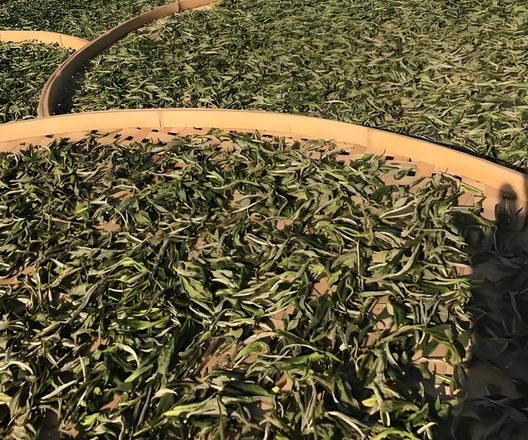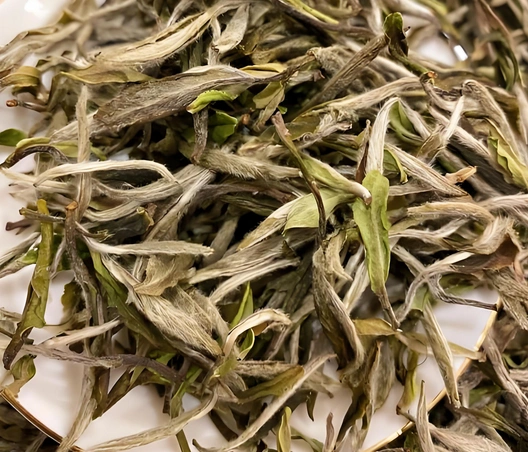White tea weight loss isn’t just a trendy phrase—it’s a gentle, sensory-rich journey that marries delicate floral aromas with potent metabolic support. Imagine starting each day with a pale-golden infusion whose silky mouthfeel soothes your senses, even as its bioactive compounds rev up your metabolism and help curb fat absorption.
In this in-depth guide, you’ll discover how white tea can become your secret weapon in weight management, from science-backed mechanisms to delicious daily rituals.

What Is White Tea?
White tea originates from the youngest, silvery-down-covered buds of Camellia sinensis, harvested before oxidation can begin. Unlike green or black teas, which undergo pan-firing or full fermentation, white tea is simply withered and gently air-dried. This minimalist processing preserves its high levels of catechins, polyphenols, amino acids (like L-theanine), and trace vitamins and minerals—ingredients that underpin white tea weight loss benefits.
Mechanisms of Weight Loss Support
1. Boosting Metabolism
White tea’s star compound, epigallocatechin-3-gallate (EGCG), stimulates thermogenesis—the body’s “internal furnace”—helping you burn more calories even at rest. A 2010 study found that green tea catechins increased 24-hour energy expenditure by up to 4% in healthy adults ¹. While that research focused on green tea, white tea often contains even higher catechin levels due to its minimal processing.
2. Inhibiting Fat Absorption
Beyond revving metabolism, white tea weight loss properties include the inhibition of digestive enzymes like pancreatic lipase—key players in breaking down dietary fats for absorption. Laboratory experiments demonstrate that white tea extract can reduce fat accumulation by up to 30% in cell models of adipogenesis ².
3. Regulating Blood Sugar & Insulin Sensitivity
Stable blood sugar levels help prevent the roller-coaster cravings that derail diets. White tea catechins improve insulin sensitivity and slow carbohydrate digestion, smoothing post-meal glucose spikes. A randomized trial showed that tea polyphenols improved insulin response in overweight subjects over eight weeks ³.
White Tea in Weight Loss Diets
Integrating white tea in weight loss diets is as simple as swapping out one or two cups of coffee or sugary beverages for this delicate infusion. Its natural sweetness—no added sugar needed—makes it a satisfying companion to lean proteins, fresh salads, and whole grains. Try replacing your afternoon latte with white tea to avoid empty calories and to benefit from its fat-burning bioactives.

Digestion & Post-Meal Support
1. White Tea for Digestion
A soothing cup of white tea after meals promotes gentle gastrointestinal motility. Its mild tannins calm the stomach lining and support balanced enzyme activity, helping you feel lighter and more comfortable.
2. White Tea for Post-Meal Digestion
When enjoyed 15–30 minutes post-meal, white tea for post-meal digestion can reduce feelings of bloating and fullness. The gentle diuretic effect encourages fluid balance and helps flush away metabolic byproducts.
Additional Health Benefits
Antioxidant & Anti-Inflammatory Action
White tea’s abundant polyphenols combat oxidative stress and inflammation—silent drivers of weight gain and metabolic disease. By neutralizing free radicals, white tea supports cellular health and may help prevent fat-storing inflammation around organs.
Cardiovascular & Energy Support
Healthy circulation enhances nutrient delivery and energy production. The light caffeine content in white tea, combined with L-theanine, provides a calm but alert boost—perfect for sustaining energy through workouts and daily routines.
Optimal Brewing & Dosage
- Water Temperature: 75–85 °C (167–185 °F). Boiling water can degrade delicate catechins and impart bitterness.
- Steeping Time: 3–5 minutes; swirl leaves gently midway to unlock full aroma and nutrient release.
- Daily Serving: Aim for 3–4 cups spread throughout the day—morning, pre- or post-workout, and afternoon—to maintain steady metabolic stimulation.

🔗 To learn more about how to make tea, check out Tanbiwencha’s YouTube video explaining how to make tea.
Incorporating into Daily Routine
- Morning Metabolism Kickstart: Begin your day with a cup of white tea weight loss infusion to ignite thermogenesis.
- Pre-Meal Ritual: Sip a cup 20 minutes before meals to moderate hunger and enhance satiety.
- Workout Companion: Enjoy a cup 30 minutes before exercise to tap into improved fat oxidation.
- Cold Brew Option: Cold-steep white tea overnight for a smooth, refreshing drink—ideal for summer or post-exercise rehydration.
- Flavor Variations: Add a slice of lemon or sprig of mint to elevate flavor without adding calories.
Safety & Precautions
While white tea is generally safe, its moderate caffeine content (15–30 mg per cup) can affect sensitive individuals—limit intake in the late afternoon if sleep is disrupted. Consult your healthcare provider before using high-dose extracts, especially if you take medications or have underlying health conditions.
Conclusion
Harnessing white tea weight loss strategies offers a sensorially delightful and scientifically grounded path to healthier body composition. From metabolically active catechins to soothing post-meal digestion support, white tea stands as a versatile, natural ally. Embrace this pale-golden elixir as part of your wellness ritual—sip mindfully, relish its subtle sweetness, and watch as your body responds with invigorated metabolism and sustained well-being.



